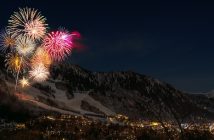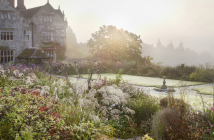So Derek Jacobi’s a Huguenot descendant? And Paul Hollywood comes from war hero stock? As the latest series of Who Do You Think You Are? graces our small screens once more, Margaret May takes a trip back in time…
From what stock might we originate? Imagine the surprise, shock and a warped fascination, on my part, to discover that an early ancestor, being one of the early settlers in America, had been caught and scalped by Native Americans. This is surely the stuff of Buffalo Bill and Hollywood lore. Where are you John Wayne? I was immediately hooked and needed to know more. Why and how was this man in America? What had he left behind in Britain?
Being a self-confessed history aficionado it was a delight, rather than a chore, to delve into the past of my ancestors. The research it involved became a captivating and intriguing journey into the lives of these predecessors. It also opened up an ever-expanding wealth of knowledge about the condition, and effect, of political, social and economic factors relevant to the times, and how they had defined peoples lives. A truly educational, and enriching, experience and one I would have hated to, unwittingly, let pass me by.
Of course there are numerous online sites to assist and verify information. Census returns, birth, marriage and death certificates just for a starter. I began to wonder why such matters are relatively unimportant to the young but they lead contemporary lives, as they should. And I was not exactly young when my own interest was ignited. If one could only tell them that those boring conversations and reminiscences with elderly relatives are a mine of information. Oh, to have the foresight to realise that such irretrievable memories are there for the taking. I have to conclude that the inevitabilities of growing old, if one is lucky enough, and a looming sense of our own mortality, suddenly make our pasts so much more interesting.
It is with a horrible sense of guilt and recrimination that I recall being taken, with my three sisters, to visit an aged, blind, aunt in Liverpool. It was woefully boring at the time but I now know that this lady had led an extraordinary life, seen her three brothers blinded from shelling in the First World War and gone blind herself after knitting socks, in poor light, for the troops. We were only young girls and three of us could not bear the feel of her whiskery chin, or her hands roaming over our faces as we made our goodbyes. How awful of us to send a more liberal sister up four times to be kissed and have her face felt. That our great aunt must have sensed our revulsion, the remorse and self reproach haunt me still.
My self-education continued apace as I discovered connections to French, Irish and American roots, enlivened by history books I was delving through insatiably; The Irish Potato Famine, The Huguenots, A Working Class Life in Cumbria, The English Workhouse, The Poor Laws and Penal Reform, The Lewis and Clarke Trail, Lives of the Native Americans, my bibliography proved endless and necessitated a new bookcase in the end. My collection of maps doubled as I invested in the earliest Ordnance Survey charts I could find. A4 paper and printer ink cartridges were on constant order. I sat up into the small hours scouring the internet for ever more information, pillaging relatives for old photographs, others for their memories. Armed with old street addresses I got used to trawling through estate agents lists looking to see how these properties may have looked some 60/70 years ago, though many places had been bombed out of existence during the Second World War.
Some town councils and dioceses had produced records of births, marriages and deaths in the local church and these could be purchased. It can be an expensive business finding your past with, for example, each BMD certificate from the Government Records Office costing just over £7. Furthermore, it can take two weeks for the certificates to arrive but the excitement and anticipation of needing your research verified is tangible. I remember the shock when a certain certificate arrived confirming, without doubt, that the woman I thought was married to my great grandfather was certainly not, but had given birth to his child. Another door opened!
Eventually I had so much information, certificates, family trees, maps, photos and pictures to collate that it really merited something to demonstrate our family’s rich history, if not the efforts of my labours. I had worked back to the 14th century by this time – although it was very hard to get citations for these early dates – and wanted something tangible to show for it. My research had put me in touch with others across the world pursuing the same names and we still exchange information. But to what ends?
Thus I created a special presentation hardback book. Something to be proud of; a talking point for the family, and the envy of other coffee table books. But it’s more than that. It pleases me that I now know from what stock I come. It’s been an informative, interesting and educational genealogical journey and one which I hope will inform the younger members of our family in years to come. And now I have a spectacular self-published book to show them.
The new series of Who Do You Think You Are? is currently showing on BBC1 on Thursday nights at 9pm. For more information, visit www.bbc.co.uk.




